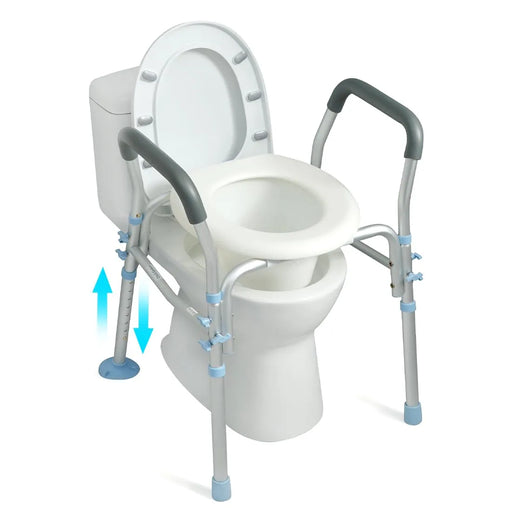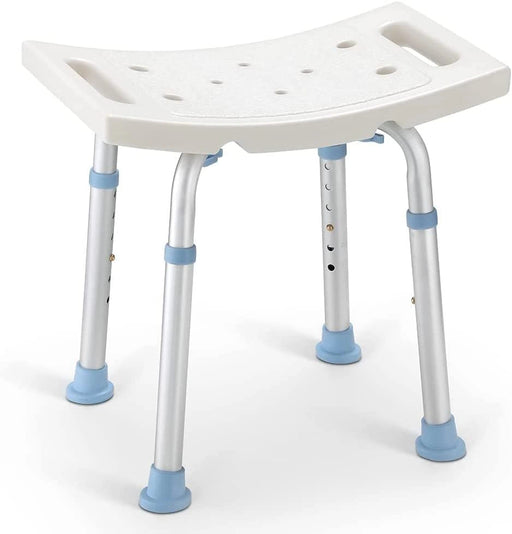7 Ways To Stay Mentally Healthy When You Retire
Many of us spend years fantasizing about our dream retirement, whether it's touring the globe, spending more time with loved ones, embracing hobbies, or just enjoying the freedom to rest and unwind for a shift. However, although we prefer to focus on the financial side of retirement, we often neglect the psychological consequences of retiring from work. Many new retirees discover that the thrill of being on "permanent vacation" runs off after a few days. You might miss the feeling of belonging, and direction that your employment provided or the social side of having colleagues.
You are bored, uninspired, and alone, rather than feeling free, peaceful, and satisfied. You may be saddened by the loss of your previous life and concerned about how you will occupy your days. Some new retirees suffer from mental health difficulties such as unhappiness and stress. The fact is that no matter how much you've expected it, leaving employment is a significant life transition that may bring both pressure and rewards. According to one ongoing research, retired adults, particularly those in their first year of retirement, are around 40% more probable to experience a heart attack or stroke than those who continue to work.
While some issues in shifting to retirement might be attributed to how much you liked your career, there are actions you can take to deal with the normal difficulties of retirement.
Explore and Acquire New Skills

The first thing you should do is to discover a new talent or something you are strong at and work on developing it. Acquiring new skills such as baking, swimming, drawing, or even ceramics helps keep your mind busy and avoid boredom. When you were employed, you were accustomed to making choices and addressing issues on a daily basis. These mind-stimulating tasks are gone with retirement.
Trying a new hobby or recreation activity may improve your brain function and mental wellbeing. Consider learning a new instrument, playing guitar, or finding your old piano in the basement and performing some notes. Adopting a new skill after retirement protects you against mental disorders such as dementia at old age.
Maintain Social Contact

Staying in touch with our friends and family has health advantages, particularly during retirement. Spending time with your loved ones is easier now that you're retired and have more time on your hands. Ignoring social connection is a sort of self-isolation that may deteriorate the brain and lead to sadness and tension. So dial the number and make those social calls, or reconnect with a friend or relative you haven't talked to in a long time.
Attempting to maintain social contacts is essential in a human's lifetime. Even if you are no longer making regular excursions to your office, there are several methods to remain in touch with your coworkers and acquaintances. You may be a member of a group by attending social events in your town, joining a reading club, or taking free courses given by certain colleges. Retaining social relationships after retirement has a good influence on mental and general wellbeing, particularly among senior citizens.
Physical Exercise

Continue moving and don't let your sore joints keep you from living a healthy lifestyle. Physical exercise of any kind is important for retirees. The daily walking routine would keep you from doctors. If you already have a cane or rollator, you should use it. These may assist enhance your balance and relieve pressure on aching joints. Moreover, consider taking up yoga or joining a community dancing class to keep active and fit after retirement. Another option to enhance your health status is to hire a personal trainer and join a group fitness class making new acquaintances. It also minimizes idleness and underutilization.
Exercise is a fantastic activity to include in your new life as a retiree. It is also an effective strategy to improve your heart and body and protect you from being physically sluggish and sick. Walking your dog or going for a quick stroll around your neighborhood is already a sort of exercise that you might undertake per day. Keeping fit after retirement allows you to live freely and avoid chronic ailments. Aside from physical activity, you should also keep a close eye on your food and alcohol use. Portable medical gadgets, such as blood pressure monitors, should be accessible at home to help you keep track of your health.
Volunteering

Being retired does not signify that your world has come to a halt and that all you can do is sit hopelessly on your couch and crochet. It all relies on how you can turn retirement into an active era of your life in which you may spend part of your time serving others by entering charities and other volunteer groups. If you miss your grandkids because they live so far away, you could find it satisfying to begin helping youngsters. You may also join a disaster relief group and become one of the trained workers reacting to victims of catastrophic disasters who need support.
Volunteering as a first responder is an excellent approach to enhance one's general fitness. Routine workouts are required to keep the brain and body functioning throughout disasters, particularly during crises.
Good Night Rest
Retirement is associated with significant shifts in lifestyle and everyday activities, which may cause stress and despair in some of our elderly. It might be unpleasant and have a detrimental influence on their sleeping habits. Their body clock was adjusted to follow a consistent pattern while they were working. And the changing waking-sleeping patterns might influence one's ability to fall asleep at night., Other variables that might impair sleep quality include excessive daytime naps, limited social events, medicines, and even harmful daily activities. Sleeping issues for our seniors should be treated appropriately since they might have a negative impact on their health.
Live Your Life in Love

When you retire, the only thing you're saying goodbye to is your profession, not your future. Find the right person after retirement for individuals who are single. For those who are married or have spouses, now is the chance to celebrate your retirement by touring the globe with your companion and being fulfilled.
A human being's most basic need is companionship. You will always need the attention, intimacy, and warmth of another human being, no matter what age you are. Spending your senior years enjoying amazing adventures with your spouse or with someone might be a motivator to get out of bed every morning.
Meaningful Life Purpose
Older folks desire to have a sense of purpose in their lives. They don't want to feel worthless and ignorant, particularly after retiring and no longer having a position. Retirement boredom may affect their general wellness since it can result in emotions of loneliness or despair. Choosing a new path after retirement is something our retirees must consider after quitting their employment. Having a purpose in life provides them meaning and a reason to live.
Some retired individuals spent so much time arranging their retirement money throughout their earning years that they forgot to contemplate what to do with it when they retired. Some individuals spend money on charity work to assist those in need, or on family vacations that may contribute to a worthwhile, pleasant life.
Without excellent health in retirement, you would find yourself spending more hours at physicians' offices than doing what you intended. To enjoy retirement to the fullest, learn to take care of yourself.
Recommend Products
-
 Sale
Sale
300LBS Capacity Raised Toilet Seat with Arms
Original price $120.99From Original price $69.99Original price $120.99Current price $69.99From $69.99Current price $69.99OasisSpace Raised Toilet Seat with Arms - Safe and Convenient OasisSpace Raised Toilet Seat with Arms provides stable support for users to sit dow...
View full detailsSaleOriginal price $120.99From Original price $69.99Original price $120.99Current price $69.99From $69.99Current price $69.99 -
 Sale
Sale
Standard - 300LBS Capacity Shower Stool
Original price $51.99From Original price $29.99Original price $51.99Current price $29.99From $29.99Current price $29.99OasisSpace Medical Square Shower Stool for Bathtub OasisSpace Square Shower Stool for Bathtub is approved as the highest standard(FDA) for medical...
View full detailsSaleOriginal price $51.99From Original price $29.99Original price $51.99Current price $29.99From $29.99Current price $29.99



